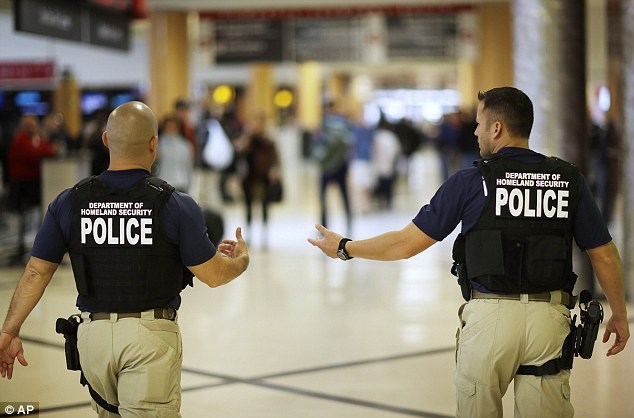DHS intel report disputes threat posed by travel ban nations

Analysts at the Homeland Security Department’s intelligence arm found insufficient evidence that citizens of seven Muslim-majority countries included in President Donald Trump’s travel ban pose a terror threat to the United States.
A draft document obtained by The Associated Press concludes that citizenship is an “unlikely indicator” of terrorism threats to the United States and that few people from the countries Trump listed in his travel ban have carried out attacks or been involved in terrorism-related activities in the US since Syria’s civil war started in 2011.
Trump cited terrorism concerns as the primary reason he signed the sweeping temporary travel ban in late January, which also halted the US refugee program. A federal judge in Washington state blocked the government from carrying out the order earlier this month. Trump yesterday said a new edict would be announced soon.
The administration has been working on a new version that could withstand legal challenges.
Homeland Security spokeswoman Gillian Christensen yesterday did not dispute the report’s authenticity, but said it was not a final comprehensive review of the government’s intelligence.
“While DHS was asked to draft a comprehensive report on this issue, the document you’re referencing was commentary from a single intelligence source versus an official, robust document with thorough interagency sourcing,” Christensen said. “The … report does not include data from other intelligence community sources. It is incomplete.”
The Homeland Security report is based on unclassified information from Justice Department press releases on terrorism-related convictions and attackers killed in the act, State Department visa statistics, the 2016 Worldwide Threat Assessment from the US intelligence community and the State Department Country Reports on Terrorism 2015.
The three-page report challenges Trump’s core claims. It said that of 82 people the government determined were inspired by a foreign terrorist group to carry out or try to carry out an attack in the United States, just over half were US citizens born in the United States. The others were from 26 countries, led by Pakistan, Somalia, Bangladesh, Cuba, Ethiopia, Iraq and Uzbekistan. Of these, only Somalia and Iraq were among the seven nations included in the ban.
Of the other five nations, one person each from Iran, Sudan and Yemen was also involved in those terrorism cases, but none from Syria. It did not say if any were Libyan.
The report also found that terrorist organizations in Iran, Libya, Somalia and Sudan are regionally focused, while groups in Iraq, Syria and Yemen do pose a threat to the US.
AP